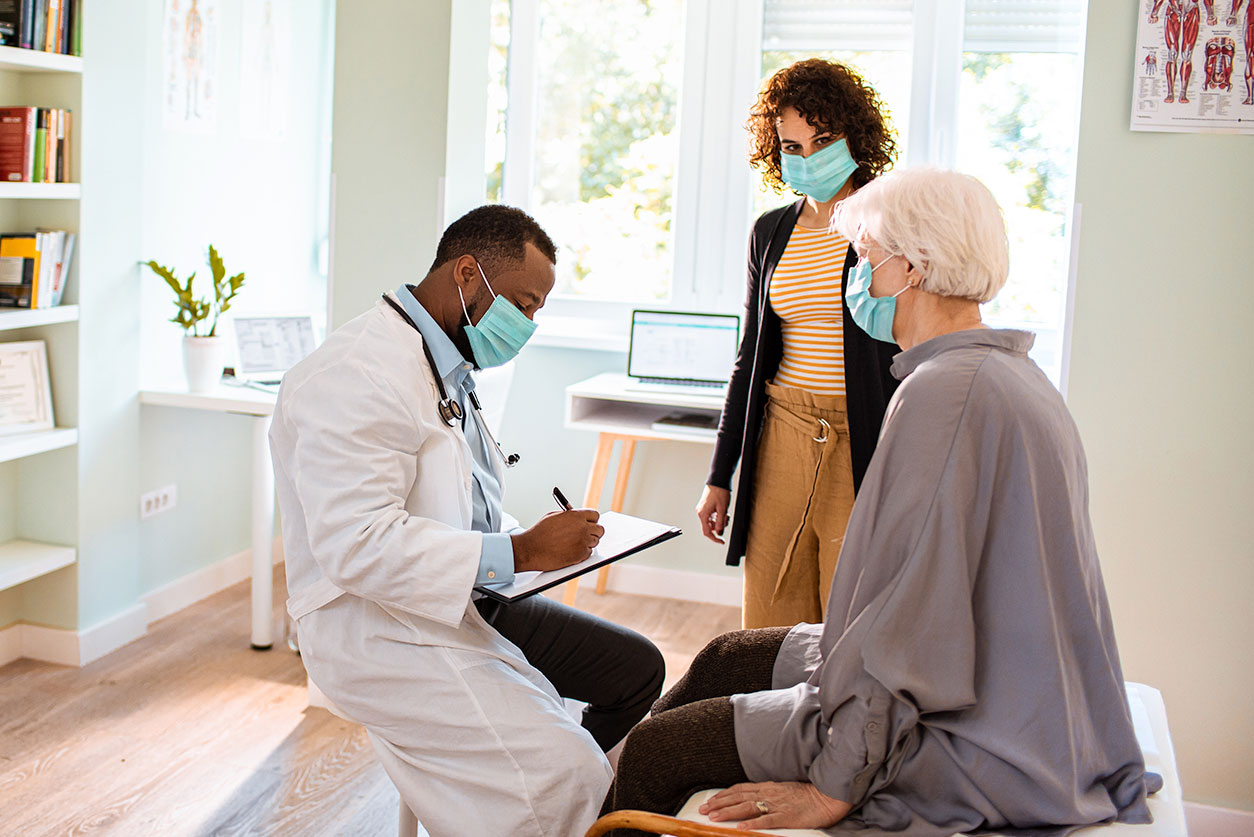Below are answers to commonly asked questions about COVID-19
What is COVID-19?
COVID-19 is also commonly known as coronavirus. This is the illness caused by the SARS-CoV-2 virus. This virus was discovered in 2019 and has since spread around the world. There are different strains of the SARS-CoV-2 virus, including the alpha and delta strains. Like many viruses, SARS-CoV-2 is continuing to mutate and produce new strains. This virus has infected millions of individuals from 2019 to now, and is the cause of our current pandemic.
COVID-19 frequently affects the respiratory system. For this reason, an individual may experience difficulty in breathing or shortness of breath. In extreme cases, the oxygen level in the body drops, causing some to individuals die of respiratory failure.
In most cases, however, people suffer from mild to moderate symptoms and do not require medical assistance. As is the case with most viral illnesses, mild cases typically take around 10 days to two weeks to resolve. In severe cases, you might need medical help to properly recover from COVID-19.
Risk Factors
As discussed above, most cases of COVID-19 are not life threatening. There are some conditions that put people at higher risk of contracting a more severe form of the illness. The most common cause of serious coronavirus illness is age greater than 70 years old.
Other systemic diseases such as high blood pressure, diabetes, heart disease, kidney disease, or other respiratory diseases are also risk factors for developing the disease in its more severe and symptomatic forms.
In addition, individuals with weakened immune systems from diseases such as AIDS or cancer are more prone to severe infection.
Symptoms
The most common symptoms of COVID-19 are sore throat, cough, fever, loss of taste and smell, shortness of breath or painful breathing, weakness, fatigue, and joint pain or body aches.
COVID-19 may also produce abdominal symptoms such as diarrhea, vomiting, and constipation.
Finally, some individuals who test positive for COVID-19 have no symptoms at all.
Treatment options
The treatment for mild to moderate symptoms includes over-the-counter cold and flu treatments, acetaminophen, and ibuprofen.
It is also important to keep yourself hydrated.
There are several treatments available for patients who fall into higher-risk categories for serious COVID illness. Most of these treatments fall into the category of intravenous (IV) medicines called monoclonal antibodies.
In severe cases, proper medical treatment is required at the hospital under the supervision of a medical team. Hospitalized patients may receive supplemental oxygen in order to maintain oxygen saturation at normal levels. Remdesivir has also been approved to treat hospitalized patients with COVID-19.
If you are suffering from mild to moderate symptoms, self-isolate yourself at home and call us at AfterOurs Urgent Care. We can give you options for our telemedicine service or to come see us in person at one of our locations.
Contact us
In case of urgent medical care assistance, AfterOurs Urgent Care offers immediate telemedicine services, where medical providers are available to offer assistance via video. Anyone who experiences signs and symptoms requiring urgent medical attention can simply book their appointment with AfterOurs Urgent Care to directly talk to an expert. If your medical issue is not appropriate for telemedicine, we will let you know and refer you to an in-person facility.
COVID-19 testing and treatment is available at AfterOurs Urgent Care.

